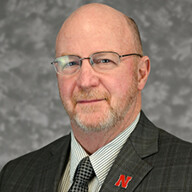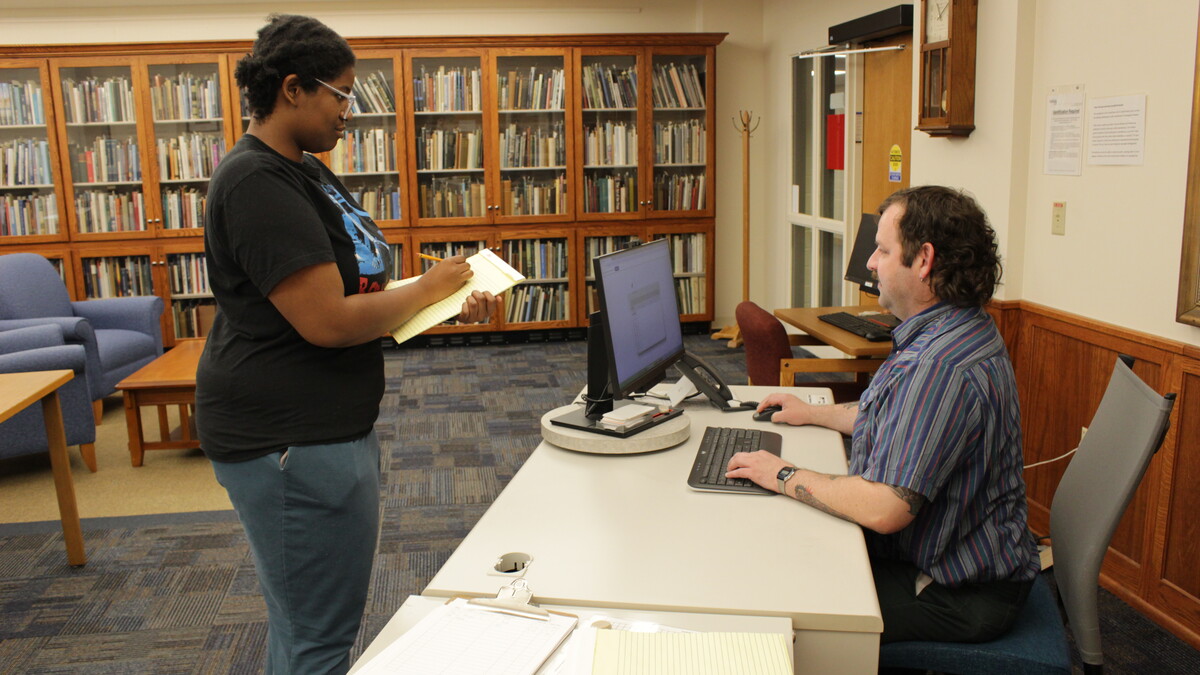
The University of Nebraska–Lincoln is leading a project to create a statewide network to support youth experiencing or threatened by homelessness.
Funded by a $1.3 million Youth Homelessness System improvement grant from the U.S. Department of Housing and Urban Development, the project will link partner organizations statewide, create systems that better identify youth in need and improve access to necessary support services.
The work will be led by co-principal investigators Jeff Chambers and Brittany Brakenhoff, leaders in the Center on Children, Families and the Law, which is part of the university’s College of Arts and Sciences.
“The impacts of homelessness are devastating and life-altering,” Chambers said. “Our ultimate goal is to have a system in place that ensures that homelessness for Nebraska youth is rare, brief and non-recurring.”
Within the last year, Nebraska systems aligned with HUD’s Continuum of Care program supported more than 1,600 youth who were imminently at risk and experiencing homelessness. More than 400 of those youth, or one in four, were unsheltered or living on the street — and 13% were age 18 or younger.

The impacts of homelessness often spill over into other aspects of the lives of youth, negatively affecting physical and mental health, education, social development and overall well-being. The problem is also very difficult to fully escape as nearly half will experience it more than once.
“The most significant predictor of future homelessness is an experience of homelessness,” Chambers said. “This is trauma that should not be a part of anyone’s life. We should do all we can to prevent and end that experience for all, particularly youth, who are the future of our communities and state.”

The project team will create seven Youth Action Boards, which will include youths who have been homeless. The boards will help inform and shape changes to Nebraska’s homelessness support systems. Their work will be supported by the Center on Children, Families and the Law.
Further, the work will focus on improving Nebraska’s homeless coordinated entry system; evaluating and monitoring systemwide changes; and researching barriers that youth and underserved populations face.
The project marks the first time all Nebraska programs aligned with HUD’s Continuum of Care have partnered on a single grant application. It also is the first grant to include direct involvement with the Winnebago and Ponca tribes.
“Minority youth, including Native American youths, do have higher incidences of homelessness than their representation in the state population,” Chambers said. “Focus on these disparities is a part of system issues to be addressed through our Nebraska Youth Homeless System Improvement Partnership.”
Project partners include the Nebraska Balance of State; City of Lincoln; Threshold Continuums of Care; Nebraska Youth Action Boards; Ponca Tribe of Nebraska; Winnebago Tribe of Nebraska; Dakota County; Nebraska Chapter of National Association of Housing and Redevelopment officials; Nebraska Department of Education; Nebraska Department of Health and Human Services; State of Nebraska Juvenile Probation Services Division; Civic Nebraska; and Housing Innovations.
Development of the Nebraska Youth Homelessness System Improvement project begins in the fall.
The grant is an extension of homelessness research and support the Center on Children, Families and the Law is providing across Nebraska. The center serves as the lead applicant for HUD Continuum of Care funding, which totals more than $12 million for housing programs and support services.
The center provides planning and research expertise to Nebraska Balance of State and City of Lincoln Continuum of Care, working to improve homelessness systems and eliminate the issue. The center acts as the homeless management information system and the homeless coordinated entry lead for both organizations.
Learn more about Nebraska’s Center on Children, Families and the Law.








